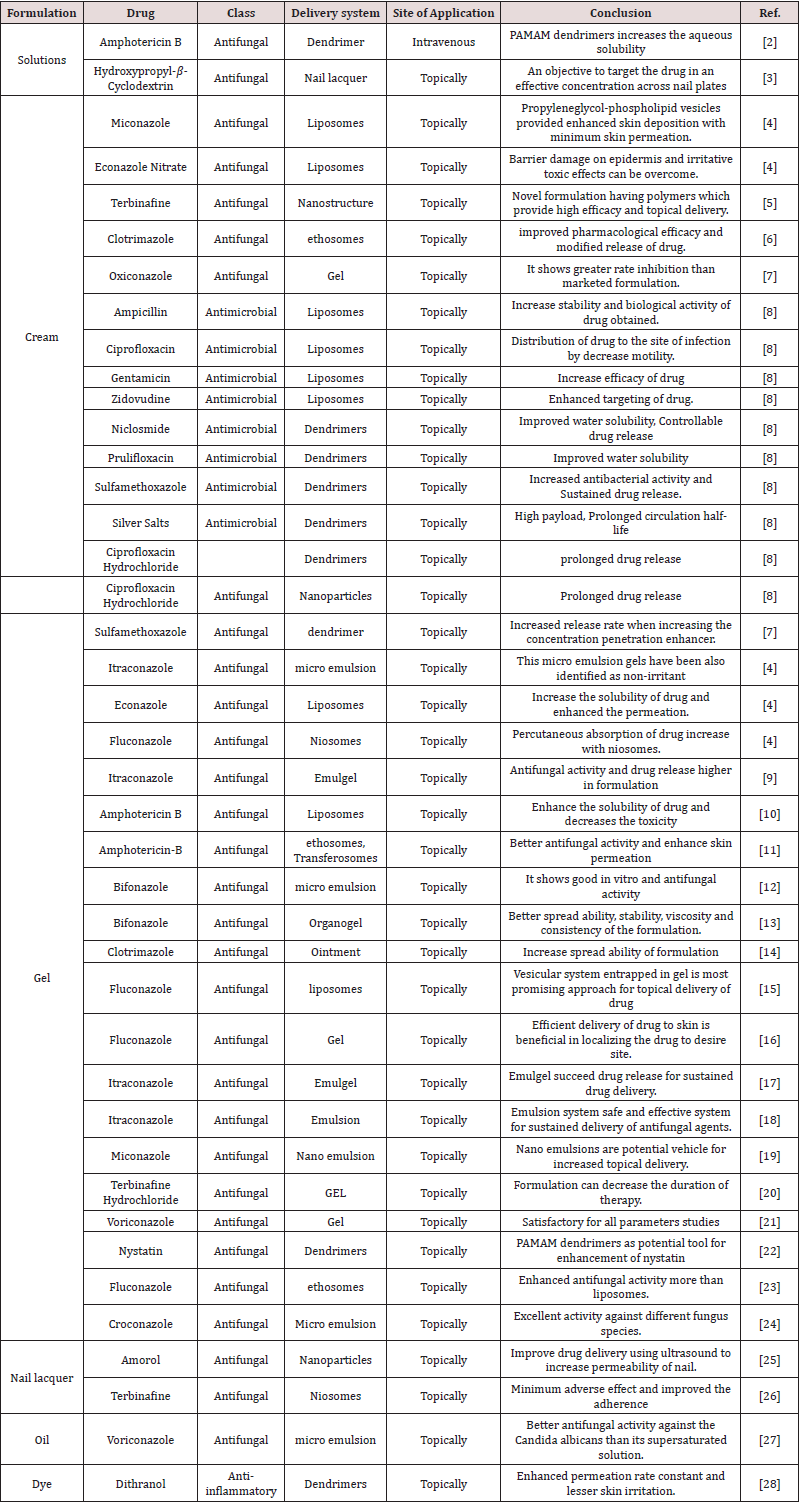Lupine Publishers | Journal of Nanomedicine
Abstract
Systemic Fungal infection of skin is also known as mycosis. Mycosis is a common fungal infection affecting human skin and causes different dermatophyte infections. Fungal infections is panic rate which presenting number of challenge to healthcare professionals. This rising rate is directly related to the growing population of immune compromised individuals thus results from changes in medical practice like use of immunosuppressive drugs and rigorous chemotherapy. Now there are modern aggressive treatment was used to control fungal infection in the body. The purpose of this review is to highlight the different novel diagnostic approaches for treatments for fungal infections.
Keywords: Fungal infection; types; characteristics; conventional; novel drug formulation
Introduction
Fungal infection (fungus) is that kind of infection which is a germ or microbe that causes infections to mammals. Another words fungus referred as mycology and in plural it is called as fungi. Fungus has become rise throughout the past decade. The fraction of weak patients is rising, paralleling the surplus use of immunological disorder therapies. The circumstances incline the patients to fungal infection have hematopoietic stem cell, transplantation and therapy as well as preterm birth etc. Among the varied opportunist pathogens, fungi express a significant and necessary threat. Fungal microbes are overabundant in nature (Table 1). They are frequent colonizers on varied human tissue layer surfaces, wherever they will live by evading host defenses (Table2).
Characteristics of fungi [1]
.a. Parasite
b. Identify by reproduction
c. Branched Filaments
Major Antifungal Agents
.a. Fluoropyrimidines
b. Polyenes
c. Azoles
d. Echinocandins
e. Polyenes
Conclusion
The best way to deal with the ideal management of fungal infection is firstly finding and identify the causative agents and suitable treatment could be began as soon as possible (Table 3). But these days novel treatments are used for the superficial fungal infection. Which reduced the toxicity and increase the efficacy of these drugs. They are more capable of release the drug in sustained or controlled or minimizing the adverse effect of drugs such as allergic reaction and itching [1-28]. Thus, novel drug delivery system would be considered as highly efficient and better alternative for infection.
Table 3: Novel drug formulation used of Fungal Infection.




No comments:
Post a Comment
Note: only a member of this blog may post a comment.